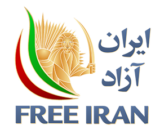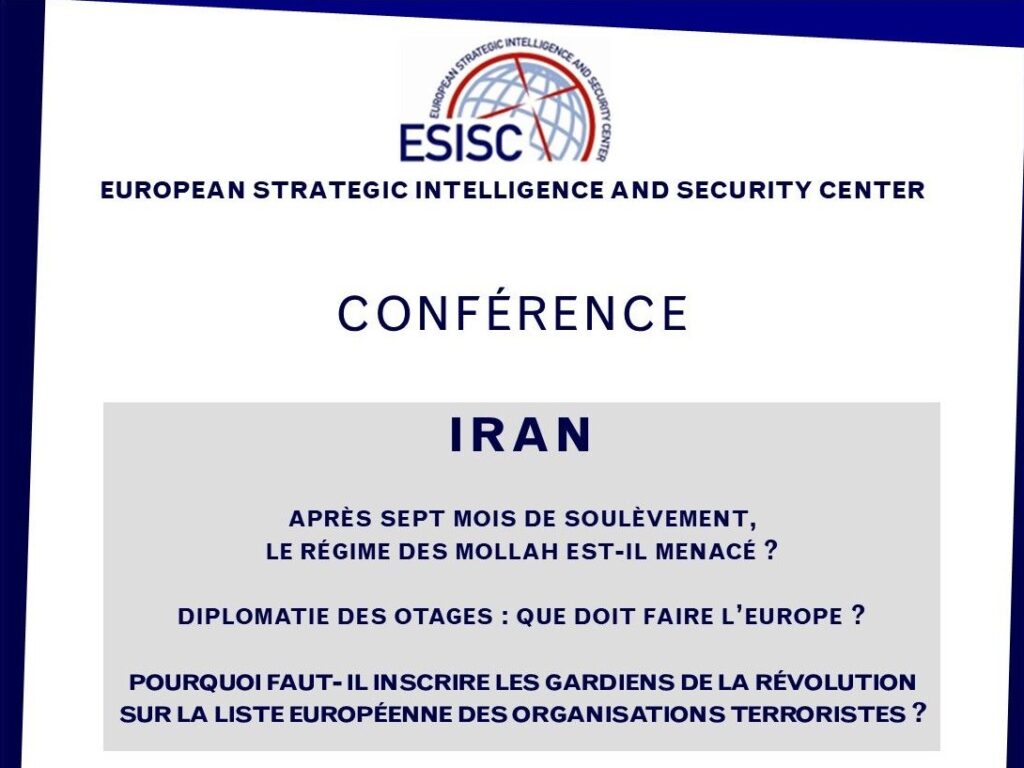IRAN TODAY: IS THE REGIME IN POWER MENACED?
Conference in Brussels, Wednesday April 26, 2023
Iran has experienced a popular uprising over the past seven months.
Iranian citizens have taken to the streets to protest against corruption, repression, economic crisis, and the regime’s foreign policy. These protests were met with unacceptable violence from the regime, including imprisonment, torture, and execution of demonstrators.
A conference titled “Seven months after the uprising, is the mullahs’ regime in power in Iran menaced?” was organized by the European Strategic Intelligence and Security Center (ESISC) and the Alliance for Public Awareness (APA) in Brussels Press Club today Wednesday April 26, 2023.
Claude Moniquet, ESISC director, started the debate. He observed that, after “several months” of turmoil in Iran, an appraisal should be made of the situation.
Frederic Encel, research director from Paris Business School, began his points with the specific effects of Iranian totalitarianism on the region and the geostrategic side effects.
“Saudi Arabia and Iran were technically in a state of war,” stressed Frederic Encel. He pointed to why the rapprochement between the two regional players might not be long-lasting.
The Iranian regime faces several serious challenges, according to the speaker.
He added that all international players should keep the pressure on the regime to help those who fight for liberty continue their efforts.
Gerard Vespierre, from the Foundation of Middle East Studies, explained Iran’s economic and social crisis under the current regime with a concentration on the recent five years.
“Iranians gain one-third of what they gained ten years ago,” he explained while presenting facts and figures related to Iran’s economic and social situation.
“And then there is the continued activity by the PMOI/MEK Resistance Units, who play a vital role in keeping the uprising ongoing.
Behzad Naziri, a member of the Foreign Affairs Committee of the National Council of Resistance of Iran (NCRI), answered the main question of the conference, that is, whether the regime was menaced, by stressing that the regime’s threat was an “existential” one.
“750 people were killed during the uprising, including 70 children. Several tens of thousands are still in prison,” he said.
“During the four decades of the mullahs’ rule, no less than 120,000 have been executed in Iran for political reasons,” he emphasized. “It is important to relate what goes on in Iran these days to the movement lasting 40 years, a resistance movement against the regime.”
The rising role of the PMOI/MEK Resistance Units was explained by the speaker, who cited the regime’s officials admitting that in the 2019 nationwide uprising, 60% of all the activity came from the resistance units.
“Those units multiplied in number five times between June 2018 and 2019,” he added.
Claude Moniquet talked about what he called “hostage diplomacy” elaborated by the Iranian regime to an effective manipulation tool. He reminded that the practice began with the seizure of the US embassy in Tehran in 1980 before reaching Belgium with the much-publicized affair of Olivier Vandecasteele, the human rights activist imprisoned in Iran since February 2022, whom the Iranian regime wants to exchange with Assadollah Assadi, an Iranian diplomate arrested less than five years ago in Germany and serving a 20-year term in Belgium for having masterminded a failed bombing of the Iranian opposition NCRI gathering in 2018 near Paris.
He mentioned the case of the IRGC blacklisting, remaining a bone of contention between the European Parliament and the European Union, with the first having voted a resolution urging to blacklist the IRGC as a terrorist entity and the latter dragging its foot on the affair, pretexting the lack of a national judicial decision on the affair.
Numbering a series of assassinations and terrorist attacks committed by the IRGC the world over, Claude Moniquet underlined the importance of calling the IRGC a terrorist entity and why such an act was a right step in favor of the Iranian people’s demands as well as regional stability and detent.

